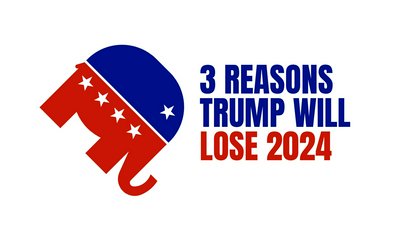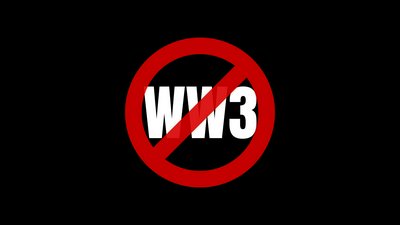economyFrance
China’s Opportunity to Uproot the Foremost Instability Factor is Now
China has a unique opportunity to deflate its real estate bubble under the cover of the collapse of a mismanaged, greedy company. It would be a gigantic mistake that would lead to tragic consequences if China were to bail out this company.
Published by Dr Jiulin Teng on 22 Sep 2021

As I have discussed in my podcast this summer, real
estate bubble is one of the most insidious form of speculative bubbles.
Briefly, unlike most bubbles that involve only a single sector or a small set
of sectors, real estate bubble has a contagion that spreads upstream to all the
vital industries of a nation and downstream to every citizen who needs to buy
or rent.
In China, a strong argument can be made that the foremost
instability factor is the housing market bubble. Prospective homeowners in
China have one of the heaviest burdens in the world in terms of housing price-to-income
ratio. Close to a quarter of China’s GDP is directly related to real estate,
and local governments up and down the country rely on land sales for their
income. As a result, the housing market is holding the country at ransom.
An Emerging Opportunity
Currently, a major real estate company in China by
the name of Evergrande is facing impending insolvency. International “economists”
with an ulterior motive prefer to dub this China’s “Lehman Brothers Moment” a
la the collapse of Lehman Brothers in 2008. They want to bait the Chinese
government to “bail out” Evergrande.
In
reality, they want to be bailed out themselves.
Rather, this is a once-in-a-lifetime opportunity
for China to deflate the real estate bubble in an orderly fashion. By my estimates,
the Chinese housing price needs to fall by 2/3 for it to have some semblance of
foundations (which would put it in line with Western Europe in terms of
affordability). If the collapse of Evergrande can facilitate this fall, the
Chinese government would have a strong excuse not to intervene. (Many
homeowners do not wish for a fall in housing price to happen, but the central government
can in this case wash its hands clean.)
Indeed, there is going to be a contagion effect:
China’s GDP may fall in the short term, upstream industries would face
difficulties, and homeowners would lose equity in their homes.
However, this is vastly superior to having a
housing collapse when unprepared, for example during a war with a foreign invading
force. If left uncontrolled, the housing market would sooner rather than later
collapse the Chinese economy anyway.
Moreover, capital has been sucked into this
unproductive industry for the past two decades. This already resulted in
underinvestment in strategic industries such as semiconductor and agriculture.
The Danger of Bail-Out
In short, the demise of the US Empire will not be
the result of endless wars: it is the 2008 Bail-Out that will eventually lead
to the end of an empire.
The keyword is Moral Hazard: By bailing out banks
that made bad investments, two things happened. One, bad behaviors are
encouraged. It is now accepted across the finance ministries of world capitals
that big companies cannot be allowed to fail. Knowing this, they have behaved
more irresponsibly than ever. Prime examples include the once-great IBM, which
has borrowed more money to buy back their own shares in the last decade than
their current market cap.
Two, to fund misbehaviors, the Federal Reserve had
to turn on the monetary spigot. QE1 led to QE2, QE2 led to QE3, and QE3 led to
QE Infinity. As the USD loses its credibility, the US is losing its exorbitant
privilege. Eventually, this will lead to the collapse of its empire, for its imperial
ventures would no longer be funded by the world—Americans would have to earn
every penny that they spend on military adventurism with hard work.
For China, the risk of bailing out a mismanaged,
greedy commercial organization is greater.
Chinese
people have a cultural inclination to gamble. If the Chinese public are assured
of government bail out in situations like this, we can without doubt expect
further levering up in speculation not only in housing market but across the
economy. In the end, it would be hard to find any major Chinese corporation
that is not on the verge of collapse. With it, economic growth will come to a halt,
and China’s internal problems such as overpopulation and environmental
destruction would become impossible to control.
In this situation, turmoil can befall China’s
political system: Unlike the US, which still has strong institutions and a
public with faith in the institutions, China has weak institutions backed by a
strong government. As such, while the US will rebound easily after the fall of
its empire (and perhaps even a government), the Chinese system will not rebound
as easily. While disastrous situations similar to that of Ukraine is unlikely
to take place in China, we can expect a decade of difficulty similar to that
which Russia experienced in the 1990s.
Additional Benefits of a Housing Reset
Lastly, I want to briefly touch on a couple of additional
benefits of a reset of the housing market:
One,
capital can be freed and allocated to strategic industries (and building more
apartments than there are people is not one of them).
Two,
this reset will lead to a deflationary period in China. At the same time, the
world, led by the USD system, is experiencing inflation. The net result is that
wealth will flow into China, facilitating a speedy recovery and fast future
growths.



